Jose A. Ayala-Romero
TelecomRAG: Taming Telecom Standards with Retrieval Augmented Generation and LLMs
Jun 11, 2024Abstract:Large Language Models (LLMs) have immense potential to transform the telecommunications industry. They could help professionals understand complex standards, generate code, and accelerate development. However, traditional LLMs struggle with the precision and source verification essential for telecom work. To address this, specialized LLM-based solutions tailored to telecommunication standards are needed. Retrieval-augmented generation (RAG) offers a way to create precise, fact-based answers. This paper proposes TelecomRAG, a framework for a Telecommunication Standards Assistant that provides accurate, detailed, and verifiable responses. Our implementation, using a knowledge base built from 3GPP Release 16 and Release 18 specification documents, demonstrates how this assistant surpasses generic LLMs, offering superior accuracy, technical depth, and verifiability, and thus significant value to the telecommunications field.
Fair Resource Allocation in Virtualized O-RAN Platforms
Feb 17, 2024Abstract:O-RAN systems and their deployment in virtualized general-purpose computing platforms (O-Cloud) constitute a paradigm shift expected to bring unprecedented performance gains. However, these architectures raise new implementation challenges and threaten to worsen the already-high energy consumption of mobile networks. This paper presents first a series of experiments which assess the O-Cloud's energy costs and their dependency on the servers' hardware, capacity and data traffic properties which, typically, change over time. Next, it proposes a compute policy for assigning the base station data loads to O-Cloud servers in an energy-efficient fashion; and a radio policy that determines at near-real-time the minimum transmission block size for each user so as to avoid unnecessary energy costs. The policies balance energy savings with performance, and ensure that both of them are dispersed fairly across the servers and users, respectively. To cater for the unknown and time-varying parameters affecting the policies, we develop a novel online learning framework with fairness guarantees that apply to the entire operation horizon of the system (long-term fairness). The policies are evaluated using trace-driven simulations and are fully implemented in an O-RAN compatible system where we measure the energy costs and throughput in realistic scenarios.
Risk-Aware Continuous Control with Neural Contextual Bandits
Dec 15, 2023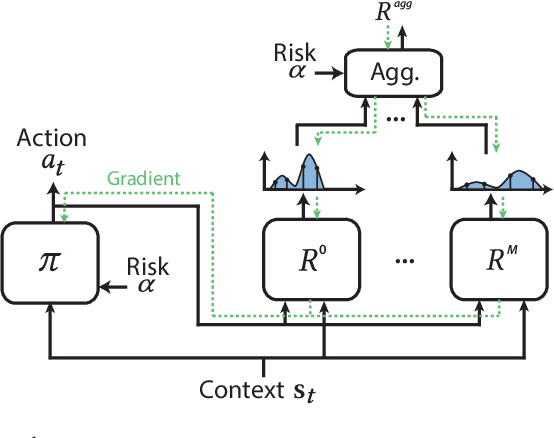
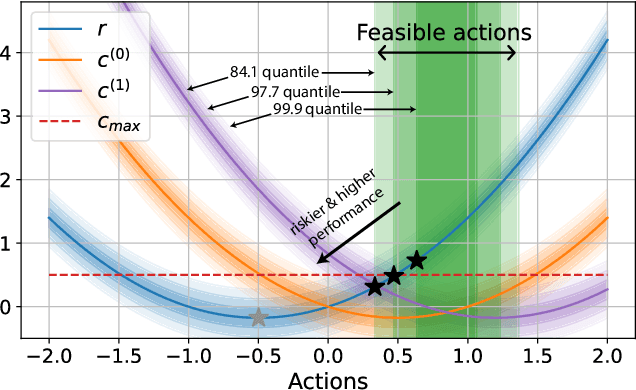
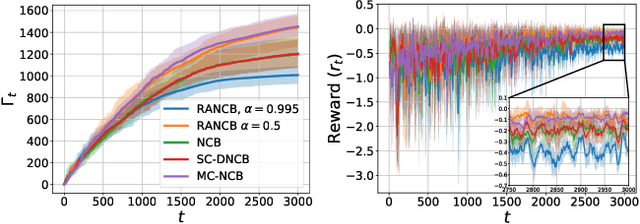
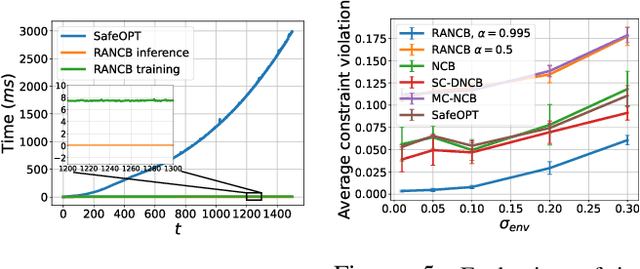
Abstract:Recent advances in learning techniques have garnered attention for their applicability to a diverse range of real-world sequential decision-making problems. Yet, many practical applications have critical constraints for operation in real environments. Most learning solutions often neglect the risk of failing to meet these constraints, hindering their implementation in real-world contexts. In this paper, we propose a risk-aware decision-making framework for contextual bandit problems, accommodating constraints and continuous action spaces. Our approach employs an actor multi-critic architecture, with each critic characterizing the distribution of performance and constraint metrics. Our framework is designed to cater to various risk levels, effectively balancing constraint satisfaction against performance. To demonstrate the effectiveness of our approach, we first compare it against state-of-the-art baseline methods in a synthetic environment, highlighting the impact of intrinsic environmental noise across different risk configurations. Finally, we evaluate our framework in a real-world use case involving a 5G mobile network where only our approach consistently satisfies the system constraint (a signal processing reliability target) with a small performance toll (8.5% increase in power consumption).
ML Approach for Power Consumption Prediction in Virtualized Base Stations
Jan 13, 2023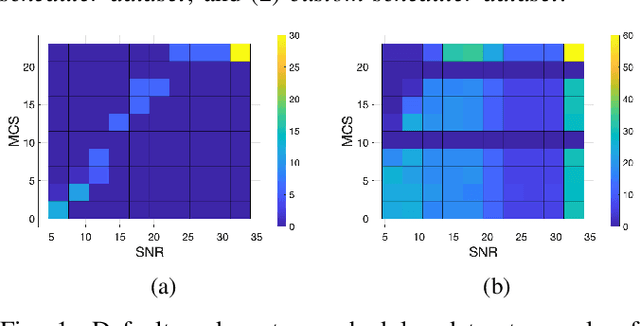
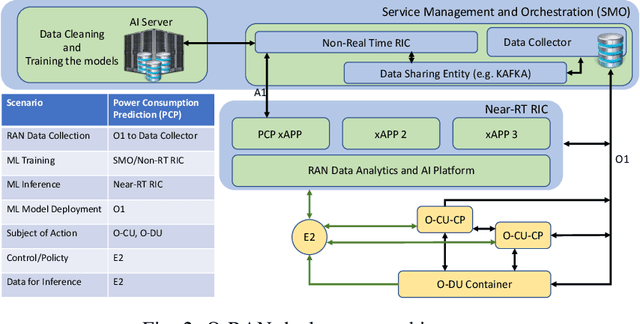
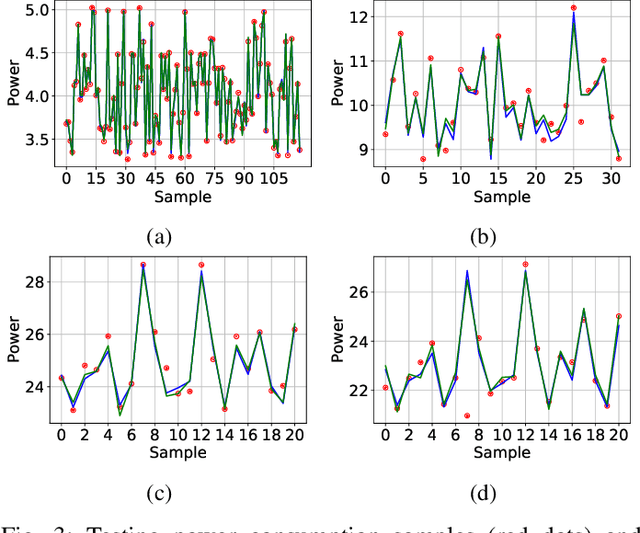
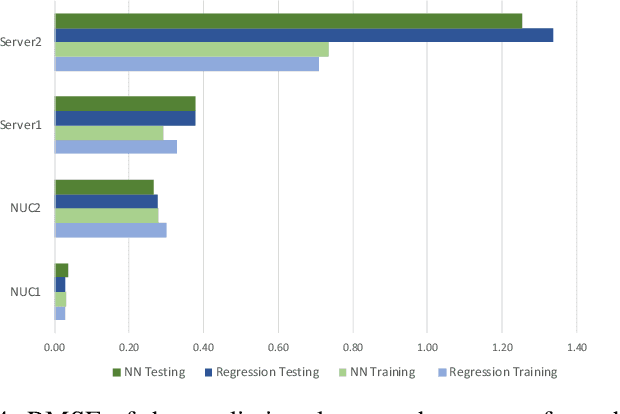
Abstract:The flexibility introduced with the Open Radio Access Network (O-RAN) architecture allows us to think beyond static configurations in all parts of the network. This paper addresses the issue related to predicting the power consumption of different radio schedulers, and the potential offered by O-RAN to collect data, train models, and deploy policies to control the power consumption. We propose a black-box (Neural Network) model to learn the power consumption function. We compare our approach with a known hand-crafted solution based on domain knowledge. Our solution reaches similar performance without any previous knowledge of the application and provides more flexibility in scenarios where the system behavior is not well understood or the domain knowledge is not available.
 Add to Chrome
Add to Chrome Add to Firefox
Add to Firefox Add to Edge
Add to Edge